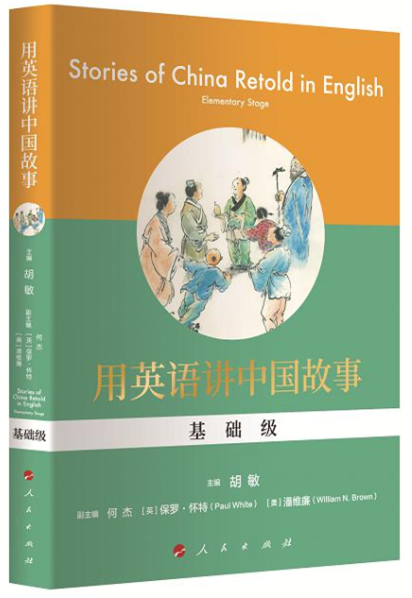今天重庆新航道的小编要给大家分享的是如何用英文来很好地向外国友人介绍清明节,这其中涉及到的英文表达相信一定可以对大家的四六级翻译考试有用,下面就跟着重庆新航道的小编一起来看看吧。
为什么国务院选择今天作为全国哀悼日?这是因为今天是一个特殊的日子——中国的清明节,它是中国一个自然节气与文化传统相结合的节日。
节气是古人用来表明气候变化和农事季节的。“清明”是24个节气之一,一般是在公历四月五日前后。清明节时天气渐暖,雨水增多,正是春耕春种的大好时节。
“寒食节”是清明节文化传统的来源。中国春秋时代(公元前770至476年),晋国公子重耳为躲避战乱被迫流亡他国十九年,随从介子推对他非常忠心。在一次饥荒中,他甚至割下自己腿上的肉给重耳吃。重耳励精图治,成为了晋国的国君,史称“晋文公”。后来他想要报答介子推的恩情,但介子推不求利禄,与母亲归隐绵山。晋文公为了迫使其出山相见,下令放火烧山,但介子推始终不出山,最终被烧死。为了表示对介子推母子的悼念,晋文公下令,每年这一天全国一律禁止生火,家家户户只能吃冷饭、喝凉水,以寄哀思。这一天从此成了纪念介子推的节日——寒食节。每年这一天,晋国百姓携带祭品赶往绵山,祭奠介子推,为他打扫墓地,寄托对他的敬仰与怀念。“扫墓”由此成了寒食节的重要习俗。
因为寒食节恰恰是在清明的前一两天,所以禁火、扫墓的风俗自然而然地融入到了清明中。唐以后,寒食与清明已经没有严格的区分。人们在这一天慎终追远,礼敬祖先,对逝去的亲人寄托相思之情,并提醒自己要进行春耕春种。最终,两节合一,变成一个独具特色的节日。
今天,清明节已不再是一家一户的的祭悼,更多的人走向烈士陵园和人民英雄 纪念碑,向为中华民族献出了宝贵生命的所有先烈们,致以崇高的敬意!
Story of Qingming Festival
Why does the State Council choose today as a national mourning day? Because it is a special day in China--Qingming Festival, or Tomb Sweeping Day, the only festival that combines the Chinese 24 solar terms with traditional culture in China.
The Chinese solar terms were used to mark the change of weather and farming situations by ancient people. Qingming is one of the 24 solar terms and it usually falls on April 5. Around Qingming Festival, the weather gets mild with more rainy days. It is the ploughing and sowing season.
Cold Food Festival is the source of traditional culture of Qingming Festival. During the Spring and Autumn period (770 BC--476 BC), Prince Chong’er from Jin State was forced to flee to other states for 19 years to survive in civil war and riots. Jie Zitui, one of his servants, was devotedly loyal to Chong’er. He even chopped a piece of flesh from his own leg to feed his master in a famine. After making great efforts, Chong’er finally became King of Jin State, Duke Wen of Jin. He wanted to pay back the kindness of Jie Zitui. However, Jie Zitui refused to seek wealth and retreated to Mount Mian with his mother. In order to force Jie Zitui to come out of the mountain and meet him, Duke Wen of Jin ordered to set fire to the mountain, but Jie Zitui never came out of the mountain and was finally burned to death. To express his mourning for Jie Zitui and his mother, Duke Wen ordered that fires be banned all over the state on the day Jie died each year, and that each family could only eat cold food and drink cold water to express their mourning. That was the beginning of the “Cold Food Festival” in memory of Jie Zitui. Every year on this day, the people of the Jin State rushed to Mount Mian with sacrifices, paying respect to Jie Zitui, cleaning the cemetery for him, and reposing their admiration and memory for him. Tomb sweeping has thereby become an important custom of Cold Food Festival.
As Cold Food Festival comes one or two days prior to Qingming Festival, the customs of the former gradually melted into those of the latter. Back in Tang Dynasty (AD 618--AD 907), the two festivals became hardly distinguishable. On this day, people carefully performed funeral rites for deceased parents, honored their ancestors with sacrifices, sent their love to their deceased family members, and reminded themselves to plough and sow in spring. Finally, the two festivals became a unique festival.
Nowadays, the memorial ceremony is not only observed by individual families. People get together and go to cemeteries or monuments to pay their respects to revolutionary martyrs and heroes who have sacrificed their lives for the Chinese nation.

用英语讲中国故事(基础级)零售价格:79元/本
大课堂视频课程:季99元(含6个故事共36节课)
如果大家有需要购买用英语讲中国故事的书籍或者学习视频,可以点击在线咨询进行购买。
新航道重庆学校官网:cq.xhd.cn
新航道重庆学校电话:400-185-9090
推荐阅读: